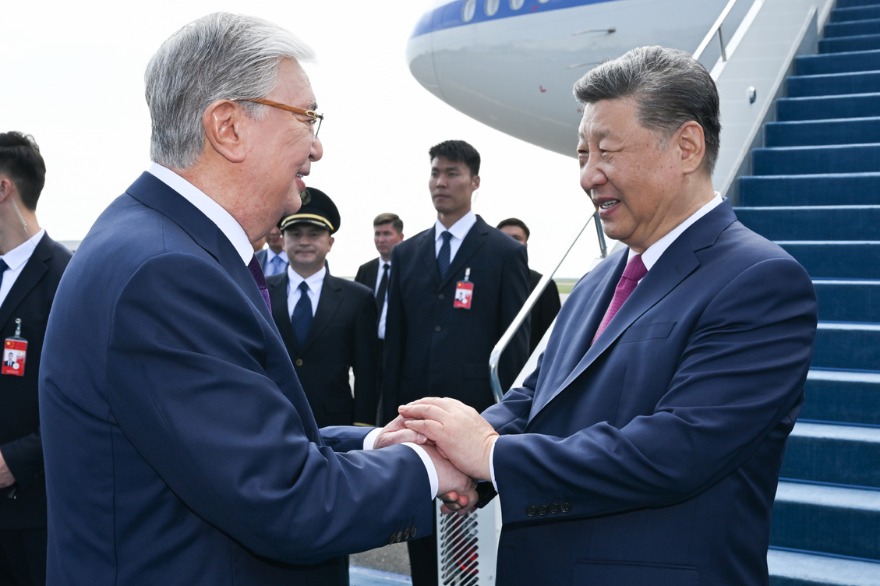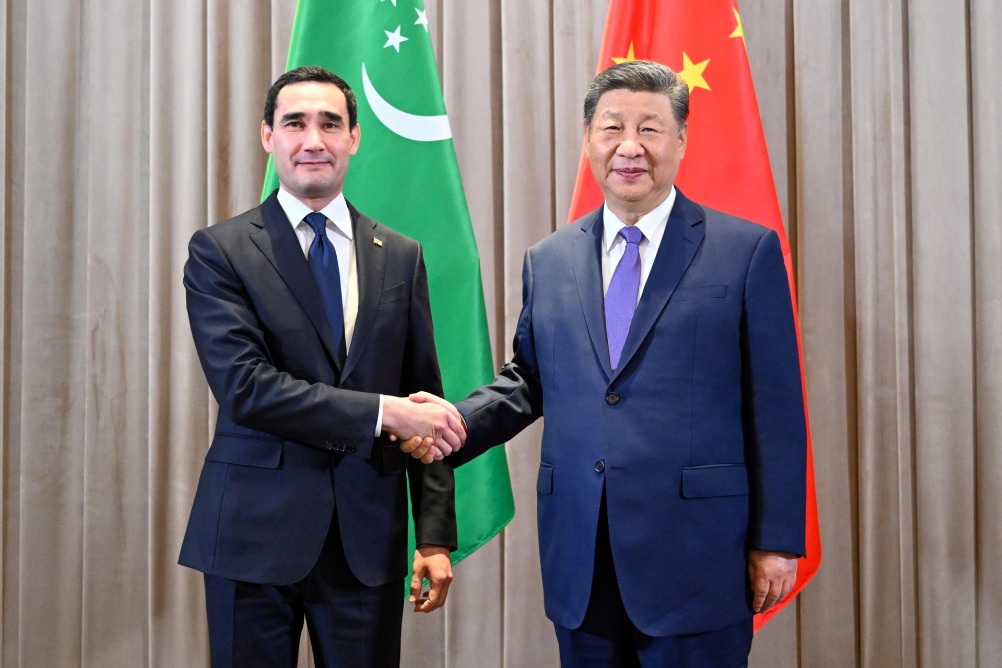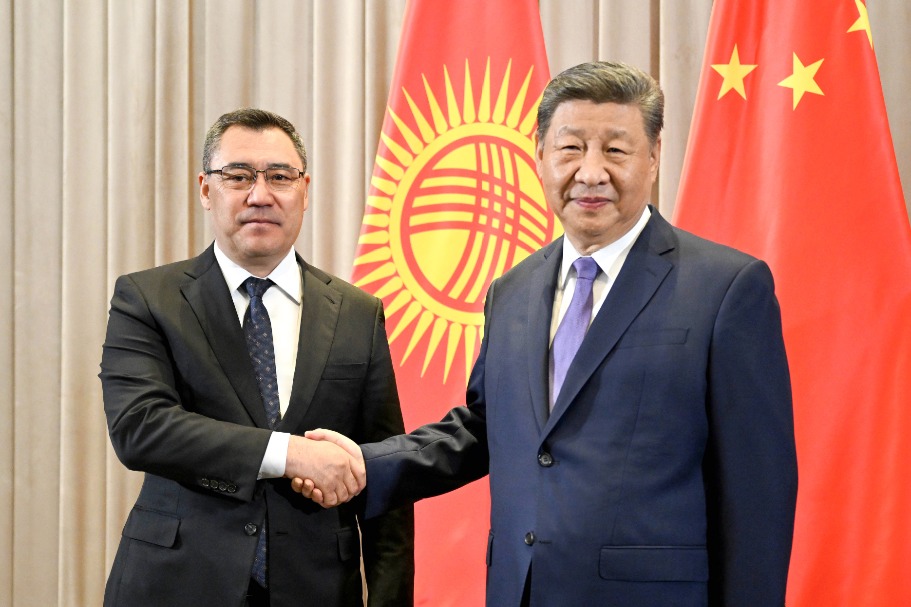China Inc needs global leaders

Neither grassroots entrepreneurs nor Western-trained professional managers are effective substitutes
China has no shortage of entrepreneurs. Astounding economic growth in the last two decades has offered fertile ground nurturing many successful entrepreneurs who are resilient, hardworking, street-smart, responsive to change, ambitious and not afraid to take risks.
China can also find an increasing number of professionally trained global managers who are adept at executing business strategies and compiling corporate policies and processes from headquarters in the United States, Europe, or elsewhere.
However, China is facing a severe shortage of global leaders. The country lacks senior executives with global perspective who are proficient at crafting global strategies and skillful at leading and engaging multi-cultural talent to execute corporate strategy. Without high-caliber global leaders in place, Chinese firms will likely pay a lot of "tuition" for costly mistakes in their overseas ventures. Neither grassroots entrepreneurs nor Western-trained professional managers are effective substitutes for the global leaders who are so desperately needed for the globalization of Chinese firms.
The lack of strong global leaders can be felt in many Chinese firms that strive to go global. TCL's acquisition of Thomson's TV business in 2005 is a telling example.
While technology issues were partly to blame, Li Dongsheng, chairman of TCL Group and a renowned entrepreneur, admitted that the lack of global leadership within the company was one of the fundamental causes of the acquisition's disappointing outcome. Despite the company recruiting many professional managers from multinational firms in China and the Asia-Pacific in a bid to beef up its leadership team, global managers could not fill the void of global leaders at the top level.
Chinese firms without global leaders at the top are likely to face several common pitfalls:
Miscalculations in business judgment, overestimating the benefits while underestimating the risks and challenges of going global or cross-cultural acquisitions;
Being too parochial in building a leadership team, and tending to trust and use leaders they are familiar with (that is, Chinese) rather than competent and experienced leaders in different parts of the world;
An over-reliance on the Chinese management approach to engaging and managing overseas talent, expecting them to demonstrate tremendous commitment to work and company, and relying on a long-term stock incentive program rather than competitive base salaries.
The results are quite predictable.
Without promising career opportunities, attractive compensation, or strong company reputation, the best talent has very little reason to join, or stay in, these Chinese firms. As a result, when Chinese firms run their overseas operations with either mediocre overseas staff or inexperienced expatriates sent from China headquarters, it takes a healthy dose of good luck for the overseas subsidiaries to be profitable. In its early years of globalization, Acer Group also went through similar challenges in keeping its American and European businesses profitable. Global leaders are one of the most valuable scarce resources as firms venture overseas.
If global leaders are critical, what common traits do they have; and in what ways are they different from typical grassroot entrepreneurs? In addition to the basic requirements in terms of language and cross-cultural sensitivity, global leaders should have three unique attributes: They should be global-centric, ambi-cultural, and cautiously optimistic.
When asked to describe Acer's global strategy in a recent interview with me, J. T. Wang, current chairman of Acer Inc, succinctly summarized it in one sentence: "Using the best talent and technology around the world to capture the best market opportunities globally."
For global leaders like Wang, talent is judged by competence and experience, not by color or race. His current nine-member leadership comprises talent from six nationalities. For technology, Acer does not have any preference for vendors from the Chinese mainland, Taiwan, the US, Japan, or South Korea. Their key goal: Acer products must make use of the best technologies around the world to be competitive.
For market opportunities, Acer is comfortable to be the second player in Taiwan instead of investing heavily to fight for the top spot in its home market. The reasoning is simple: Such investment will yield much greater return in other markets, such as Russia or Italy.
Global leaders are ambi-cultural (a term coined by Professor Chen Ming-jer of the University of Virginia and president-elect of the Academy of Management), possessing the unique abilities to draw upon the best business practices from the East and the West. As China began to open up to the world in the 80s and 90s, Chinese entrepreneurs tried to copy business and management practices. They did so with strong faith and blind confidence in these principles. Western management practices were considered to be advanced while Chinese ones were viewed as primitive.
With the emergence of the Chinese economy in the last decade, and especially after the recent financial tsunami, some Chinese entrepreneurs began to question the usefulness and validity of Western management practices.
There were suddenly doubts about the sustainability of highly respected corporations such as Citicorp, Goldman Sachs and even General Electric. There is a swing toward re-discovering traditional Chinese cultures and trying to integrate business and management practices based on Chinese heritage.
But for Chinese firms to operate globally, neither extreme is effective. Global leaders need to be able to integrate and select the best from both the East and the West. Global leaders like Stan Shih (co-founder of Acer) and Liu Chuanzhi (founder of Lenovo) are able to adopt a long-term, holistic and society-driven orientation from the East while integrating decentralized and empowerment management philosophy from the West. At the same time, they are able to avoid the secrecy, nepotism and authoritarian paternalism that plague many Chinese firms, while eschewing the short-term, bottom-line-driven focus of some Western companies.
Global leaders should be cautiously optimistic. Proven to be successful in growing their businesses from scratch to great success, many Chinese entrepreneurs often have two major problems in going global: Over-reliance on the Chinese approach in managing global business and over-confidence about their abilities to go global. Global leaders like Ren Zhengfei at leading global telecommunications solutions provider Huawei and Mai Boliang of CIMC (China International Maritime Containers) are cautiously optimistic, experimenting with small-scale global initiatives before scaling up.
Globalization requires "tuition" to be paid during the learning process. As emphasized by Stan Shih, it is best to fight "battles that you can afford" rather than undertaking over-ambitious plans. In contemplating the decision to acquire IBM's PC division, Liu Chuanzhi spent a tremendous amount of time ensuring that Lenovo could afford the risks, and had the capabilities to integrate and manage the acquisition.
Looking ahead, China desperately needs a new generation of global leaders to steer global endeavors. Unfortunately, there is no short cut to groom global leaders and, ultimately, experience counts.
There are three ways to accelerate the learning curve of global leaders.
First, Chinese entrepreneurs should engage and experiment with global initiatives whose risks are affordable. They should set up overseas offices, R&D outposts, factories or procurement offices in targeted countries that are close to China (not only in terms of geographical distance, but also stages of economic development, cultural similarities and political structures).
Second, they should learn from the experience of other experienced global leaders. Sometimes, it is not necessary to pay "tuition" as some mistakes made in the initial stage of globalization are very common: Over-confidence, being too ethno-centric or being too focused on the short term.
Third, Chinese entrepreneurs should invest in overseas equity as minority shareholders but actively sit on different committees to learn first-hand how businesses are run in those countries. In addition to focusing on the development of current leaders, companies should also invest in the next generation of global leaders. They need to recruit high-potential talent with global exposure, assimilate them into company culture and systematically rotate them for different overseas assignment. To accelerate its global journey, Samsung aggressively recruits several hundred MBA graduates every year in the US. More importantly, most of these MBA graduates are US-born Koreans who share Korean heritage and culture. They then put them to work in South Korea for a while, to get familiar with the company culture, then send them to targeted overseas markets to learn the language, culture and business environment of these targeted markets before assigning them to take on leadership roles. By targeting talent with diverse cultural backgrounds exposed to both the East and the West, they are more likely to be ambi-cultural and global-centric when they eventually become global leaders.
The author is Philips chair professor of human resource management, professor of management, CEIBS, associate dean, CEIBS, director of the Center of Organizational and People Excellence and founding director, CEO Learning Consortium.
Today's Top News
- Middle East tensions nearing climax
- Xi returns to Beijing after attending 2nd China-Central Asia Summit
- Xi leaves Astana after attending China-Central Asia Summit
- Multifaceted partnership has entered a new stage
- Global firms optimistic about China's market potential
- Xi calls for de-escalation of tensions in Middle East






























